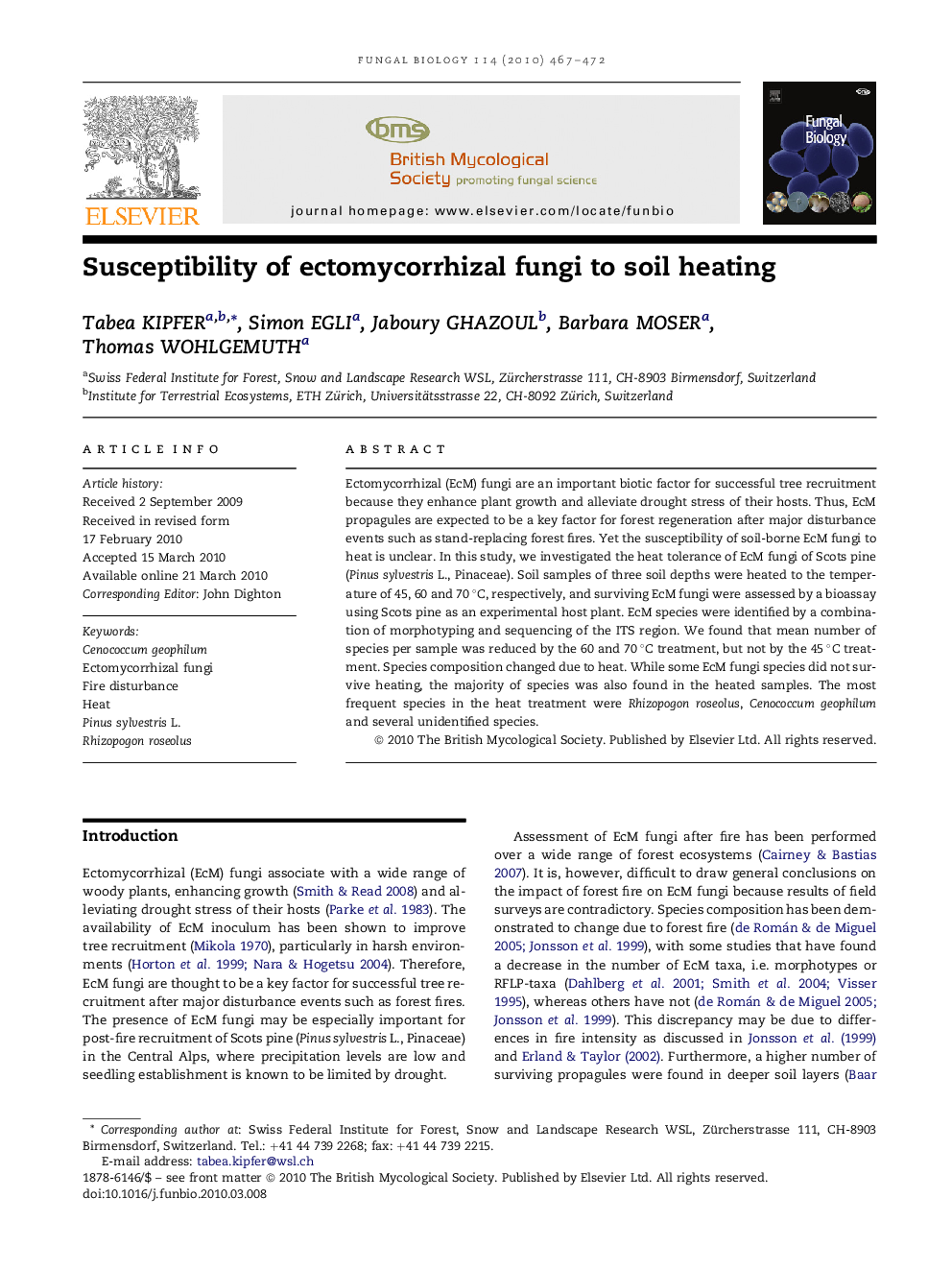| Article ID | Journal | Published Year | Pages | File Type |
|---|---|---|---|---|
| 4357284 | Fungal Biology | 2010 | 6 Pages |
Abstract
Ectomycorrhizal (EcM) fungi are an important biotic factor for successful tree recruitment because they enhance plant growth and alleviate drought stress of their hosts. Thus, EcM propagules are expected to be a key factor for forest regeneration after major disturbance events such as stand-replacing forest fires. Yet the susceptibility of soil-borne EcM fungi to heat is unclear. In this study, we investigated the heat tolerance of EcM fungi of Scots pine (Pinus sylvestris L., Pinaceae). Soil samples of three soil depths were heated to the temperature of 45, 60 and 70 °C, respectively, and surviving EcM fungi were assessed by a bioassay using Scots pine as an experimental host plant. EcM species were identified by a combination of morphotyping and sequencing of the ITS region. We found that mean number of species per sample was reduced by the 60 and 70 °C treatment, but not by the 45 °C treatment. Species composition changed due to heat. While some EcM fungi species did not survive heating, the majority of species was also found in the heated samples. The most frequent species in the heat treatment were Rhizopogon roseolus, Cenococcum geophilum and several unidentified species.
Related Topics
Life Sciences
Agricultural and Biological Sciences
Agricultural and Biological Sciences (General)
Authors
Tabea Kipfer, Simon Egli, Jaboury Ghazoul, Barbara Moser, Thomas Wohlgemuth,
